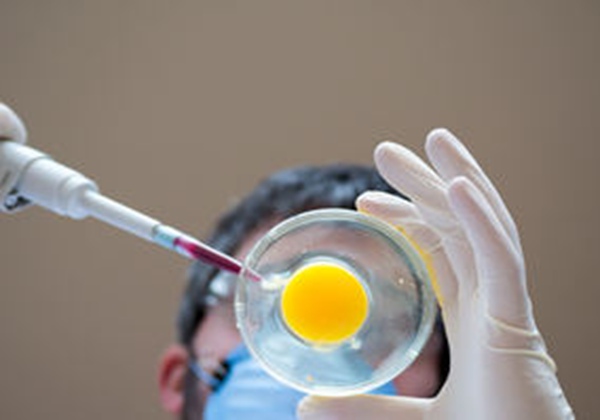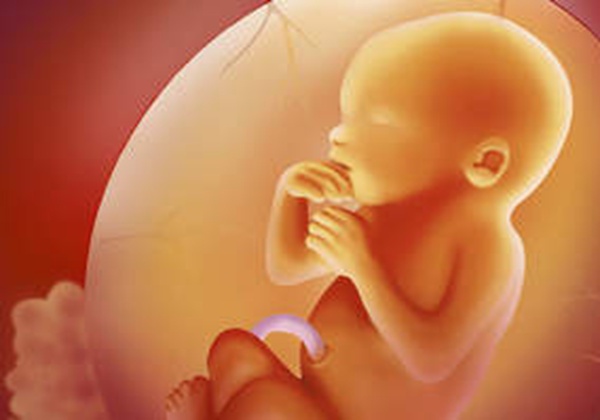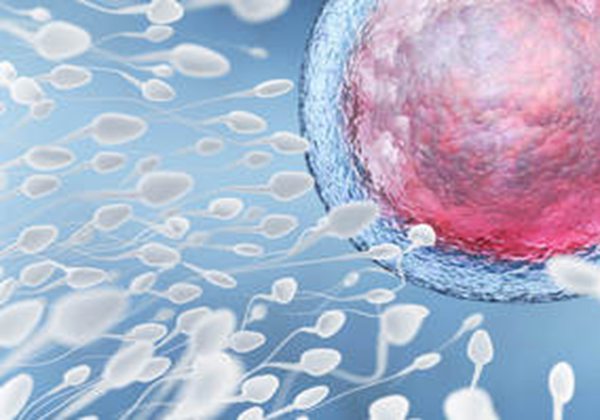What is egg freezing and IVF? IVF success rates for frozen eggs revealed!

Egg freezing and IVF provide more fertility options for modern women, especially for those who wish to delay childbearing or need to preserve their fertility for medical reasons. Egg freezing uses advanced technology to preserve eggs at -196 degrees Celsius, and after thawing, they can be used for in vitro fertilization (IVF). The success rate is affected by a number of factors including the age of the woman, the number of eggs, the freezing technique and the standard of the clinic, with age being the most critical factor. Younger women have significantly higher success rates for egg freezing than older ones. With advances in vitrification freezing technology, the results of egg freezing have come close to those of fresh eggs. However, egg freezing is not an absolute guarantee of pregnancy, but rather a form of "fertility insurance". Early planning and choosing a quality provider can maximize the chances of success. This article explains how successful IVF using frozen eggs is, what factors affect the success rate, and answers some frequently asked questions.
What is egg freezing and IVF?
Egg freezing is a technique used to preserve a woman's ability to conceive in the future and refers to the removal of eggs from a woman's body and their freezing for future use. This technique is particularly suitable for women who wish to delay childbearing, whose fertility may be affected by medical treatments such as chemotherapy, or who wish to have the option of having children at some point in the future. The process of egg freezing involves the use of medication to stimulate the ovaries to produce multiple mature eggs, which are then removed through an egg retrieval procedure. The eggs are then rapidly cooled to -196 degrees Celsius and placed in a "suspended" state so that they can be stored for long periods of time without losing their biological activity. Currently, there are two main types of cryopreservation used in medicine: slow programmed cryopreservation and vitrification cryopreservation, the latter of which is preferred because of its efficiency and high egg survival rate.
In vitro fertilization (IVF, in vitro fertilization) is a method of helping people get pregnant by combining eggs and sperm in a laboratory. During IVF, a woman usually undergoes ovulation induction therapy to encourage her ovaries to produce multiple mature eggs, which are then removed by a doctor through an egg retrieval procedure and combined with sperm to form an embryo in the lab. The resulting embryos are cultured in the laboratory for a few days and then the best quality embryos are selected for transfer back into the woman's uterus with a view to achieving a pregnancy. If there are extra embryos, there is the option of freezing them for later use.
When we talk about egg freezing and IVF, we are referring to the use of previously frozen eggs to try to conceive. In this case, frozen eggs are thawed when needed and combined with sperm to form an embryo through in vitro fertilization techniques. This approach provides a new fertility option for many women whose fertility has declined due to age or other reasons. However, it is important to note that the success rate of egg freezing is affected by a number of factors, such as the quality of the eggs, the age of the woman, and the technical conditions during the freezing and thawing process. In addition, egg freezing does not guarantee a successful pregnancy, so it is considered more of a "fertility insurance" rather than an absolute solution.
How successful is IVF with frozen eggs?
The success rate of IVF with frozen eggs is affected by a number of factors, including the woman's age, the quality of her eggs, the level of freezing and thawing techniques, and the technical conditions of the embryo transfer. Overall, women who use their own frozen eggs have a success rate of approximately 181 TP3 T. However, if they choose to use donor eggs, the success rate increases significantly to approximately 301 TP3 T. This suggests that the quality and source of the eggs play a key role in determining the success rate.
The live birth rate is one of the most important indicators of the success of IVF with frozen eggs. Some studies have shown that after using frozen eggs, about 261 TP3T of women are able to successfully give birth to a child. This number can even be as high as 37.91 TP3T in quality clinics with advanced equipment and experience, indicating that choosing the right provider and technical team is crucial to improving the success rate. In addition, studies have shown that advances in egg freezing technology have resulted in thawed egg survival rates of up to 95% or more, with no significant difference in embryo implantation rates compared to fresh eggs. Therefore, with the development of technology, the use of frozen eggs is gradually approaching or even comparable to that of fresh eggs.
Fresh eggs vs. frozen eggs: In the past, fresh eggs were considered the "gold standard" in IVF techniques. However, in recent years, studies have shown that frozen eggs are now almost as effective as fresh eggs. In fact, some studies have even shown that they are as effective. Using the number of embryos implanted as the denominator, the live birth rate for fresh eggs was 561 TP3T, while the rate for frozen eggs was 471 TP3T; while there is a gap, it is gradually narrowing. This is largely due to the widespread use of vitrification freezing technology, which has dramatically increased the survival rate of eggs and the success rate of subsequent fertilization.
In addition, a woman's age is a key factor in the success rate. Younger women have better results with egg freezing, for example, if 25 eggs are frozen at the age of 30, the success rate of using these eggs for fertility can reach 401 TP3 T. For those aged 35 years and below, the success rate of getting pregnant after egg freezing ranges from 151 TP3 T to 611 TP3 T; and for those aged 35 years and above, the success rate decreases to 51 TP3 T to 301 TP3 T. The success rate of egg freezing for women aged 35 years and below is also very high. This again emphasizes the importance of early egg freezing.
It is important to note that freezing eggs does not guarantee a successful pregnancy. It is generally recommended internationally that women freeze 15-20 or more mature eggs to increase the success rate. However, even then, success rates may still vary depending on individual differences. As a result, egg freezing is seen more as a form of "fertility insurance" rather than an absolute solution.
In conclusion, the success rate of IVF with frozen eggs varies depending on a number of factors, but with advances in technology, the results are approaching those of fresh eggs. Choosing the right time to freeze your eggs, selecting a quality provider, and developing a reasonable plan based on your individual situation will help maximize the likelihood of a successful pregnancy.
Why is there such a difference in success rates?
Variations in success rates are largely dependent on a number of factors. Let's look at each of these key factors to better understand the variation in IVF success rates with frozen eggs.
1. Age at time of egg freezing
Age is one of the most important factors affecting the success rate. women under the age of 35 have the highest success rate because their eggs are healthier and have a lower risk of chromosomal abnormalities. after the age of 35, the quality of the eggs begins to deteriorate, and especially after the age of 40, there is a significant increase in the risk of chromosomal abnormalities in the eggs, leading to a significant decrease in the success rate.
- Under 35 years of age: about 301 TP3T success rate. Younger women's eggs have a higher rate of fertilization and embryo survival, and therefore a higher probability of successful pregnancy.
- 35-37 years: about 20% success rate. Egg quality has begun to decline at this stage, but there is still some reproductive potential.
- Over 40: less than 101 TP3T success rate. Both the number and quality of eggs decline significantly with age, with success rates decreasing further, especially after age 41.

2. Number of frozen eggs
The greater the number of eggs frozen, the greater the chance of success. Studies have shown that freezing 10-15 eggs provides the best chance of success. If fewer than 5 eggs are frozen, the success rate is much lower; and freezing too many (more than 20) can cause problems, such as Ovarian Hyperstimulation Syndrome (OHSS).
- Less than 5: Lower success rate, recommend freezing more eggs to increase probability.
- 10-15: optimal opportunity to ensure success while avoiding the risk of overstimulation.
- More than 20: While potentially providing more choices, they increase health risks and need to be evaluated carefully.
3. Survival after thawing
Not all frozen eggs survive after thawing. Modern freezing methods such as vitrification freezing have a survival rate of about 90-951 TP3T, whereas the old methods had a survival rate of only about 611 TP3T. this shows that advances in technology have a significant impact on success rates.
4. Fertilization and pregnancy rates
After thawing, the egg needs to combine with sperm to complete fertilization. Approximately 701 TP3T of thawed eggs can be successfully fertilized, of which approximately 451 TP3T will develop into a pregnancy. However, the ability of the fertilized embryo to latch on and develop into a healthy fetus is influenced by other factors.
Other important factors
Frozen preservation method
Modern freezing methods such as vitrification allow eggs to be preserved longer and in a healthier state. This method reduces the formation of ice crystals through rapid cooling, which protects the cellular structure of the eggs and allows them to survive better when thawed.
Uterine health
The health of the uterus also directly affects the success rate. The thickness of the lining of the uterus, its blood supply and overall state of health all affect the implantation and development of the embryo. If there is disease or dysfunction in the uterus, even if the embryo is of good quality, the pregnancy may not be successful.
Lifestyle choices
Daily life behaviors can affect the success of IVF:
- Smoking: reduces the quality of the eggs and the receptivity of the endometrium, thus reducing the success rate.
- Alcohol consumption: Excessive alcohol consumption may damage reproductive health and increase the risk of miscarriage.
- Stress and poor diet: Chronic stress and unhealthy eating habits may lead to endocrine disruption, making pregnancy more difficult.
Professionalism of the clinic
It is important to choose a clinic that has a high success rate and advanced technology. Quality clinics not only use advanced freezing and thawing techniques, but also offer personalized treatment plans that can significantly improve success rates.
What's the difference between frozen egg IVF?
When eggs are frozen, they are placed in special tubes that protect them during the freezing and storage process. In recent years, there have been significant improvements in this process, particularly with regard to freezing technology.
How does it work?
- Removal of eggs from the ovaries: The ovaries are stimulated to produce multiple mature eggs by ovulation stimulating medications, which are then removed by the doctor through a minimally invasive procedure.
- Cleaning and preparing the eggs: The retrieved eggs are carefully cleaned and checked for quality to ensure that only healthy eggs make it to the next step.
- Addition of cryoprotectant: A special liquid called cryoprotectant is added to prevent damage to the eggs due to ice crystal formation during the freezing process.
- Methods of freezing: Eggs can be preserved by vitrification freezing or the old slow freezing method. The vitrification freezing method significantly improves egg survival due to its rapid cooling.
What happens when it thaws?
When eggs are needed, they are carefully thawed. Modern techniques, particularly vitrification freezing, allow eggs to survive thawing for as much as 90-951 TP3 T. In comparison, the old methods only resulted in a survival rate of about 611 TP3 T. The eggs are then thawed and used to form embryos for IVF. The thawed eggs are then combined with sperm to form embryos for use in the in vitro fertilization (IVF) procedure.
Factors affecting egg freezing for IVF
Many factors can affect the effectiveness of egg freezing. Here are some key examples:
- (a person's) age: As mentioned earlier, younger women have healthier, higher quality eggs. This means that their frozen eggs are more likely to be successfully fertilized and develop into healthy embryos after thawing. Studies have shown that the success rate of egg freezing is significantly higher for women under the age of 35 than for women over the age of 35 because the older you are, the higher the risk of chromosomal abnormalities in your eggs, which reduces the success rate.
- freezing time: Eggs can be frozen for long periods of time and studies have shown that they can still be used after 10 or more years of freezing. However, prolonged freezing may have a slight effect on the quality of the eggs, so using frozen eggs as early as possible usually results in better outcomes.
- Laboratory quality: Quality laboratories play a vital role in the egg freezing process. These laboratories use state-of-the-art equipment and follow strict international standard operating procedures to ensure that the eggs are frozen and thawed with minimal damage. The skill level of the laboratory has a direct impact on the survival rate of the eggs and the success rate of subsequent IVF.
- Type of freezing: Modern freezing techniques such as vitrification are more effective than the old slow freezing method. Vitrification effectively reduces the formation of ice crystals through rapid cooling, thereby protecting the cellular structure of the eggs. This method results in a high egg survival rate of 90-951 TP3T after thawing, compared to the old method's survival rate of about 611 TP3T.

Recommendations for improving success rates
- Freeze your eggs as early as possible: if possible, do so before the age of 35. Age is a key factor in egg quality, and younger women have healthier eggs with a lower risk of chromosomal abnormalities. Studies have shown that women who freeze their eggs under the age of 35 have significantly higher success rates for subsequent IVF than those over 35. Therefore, the earlier you freeze your eggs, the better you can maintain the quality and viability of your eggs.
- Choosing a good clinic: Finding a clinic with a high success rate is crucial. Quality clinics offer not only advanced freezing techniques (e.g. vitrification freezing method), but also personalized treatment plans based on individual circumstances. In addition, the quality of the laboratory and the level of technology have a direct impact on the survival rate of the eggs and the success of their subsequent use.
- Freezing enough eggs: The goal is to freeze 10-15 eggs to increase the probability of a successful pregnancy. Internationally, it is generally recommended to freeze more than 15-20 mature eggs to ensure a higher live birth rate. If too few are frozen, the success rate of subsequent use may be reduced.
- Take care of yourself: avoid smoking, alcohol and stress, which can impair egg quality and overall fertility. Studies have shown that smoking reduces egg quality, while excessive alcohol consumption may affect embryo implantation. Meanwhile, maintaining a healthy diet and lifestyle can help improve egg quality and create better conditions for future pregnancies.
Frequently Asked Questions about Egg Freezing and IVF
Question 1: How long can eggs be frozen?
Eggs can be frozen for many years and studies have shown that they can still be used after 10 years or more of freezing. However, despite the fact that eggs can be stored for long periods of time, their quality may deteriorate slightly over time, so it is advisable to use them as early as possible for best results.
Question 2: Are frozen eggs as good as fresh eggs?
YES! Modern freezing techniques (such as the vitrification freezing method) make frozen eggs almost as good as fresh eggs. Some studies have even shown that both have similar success rates. While fertilization and embryo development rates may be slightly higher with fresh eggs, the quality of frozen eggs has improved significantly, making them an important choice for many women to preserve their fertility.
Question 3: What if only a few eggs survive?
If only a few eggs survive, the chances of success are even lower. This is because not all thawed eggs can be successfully fertilized and develop into healthy embryos. To improve the success rate, it is recommended that at least 10-15 eggs be frozen, especially for older women where this number is critical.
Question 4: Do clinics matter?
Yes, the clinic is very important. A quality clinic not only has state-of-the-art equipment and technology, but also has the ability to create a personalized treatment plan based on individual circumstances. In addition, the quality of the laboratory has a direct impact on the survival rate of the eggs and the success rate of subsequent IVF, so it is crucial to choose a clinic with a high level of experience and success rate.
reach a verdict
IVF using frozen eggs can yield good results, but the success rate depends on many factors. Age, number of eggs frozen and the clinic chosen are all important. Modern methods such as vitrification freezing make frozen eggs almost as good as fresh eggs. If you are considering egg freezing, consult your doctor to learn more. Remember, the sooner you freeze your eggs, the better your success rate will be.